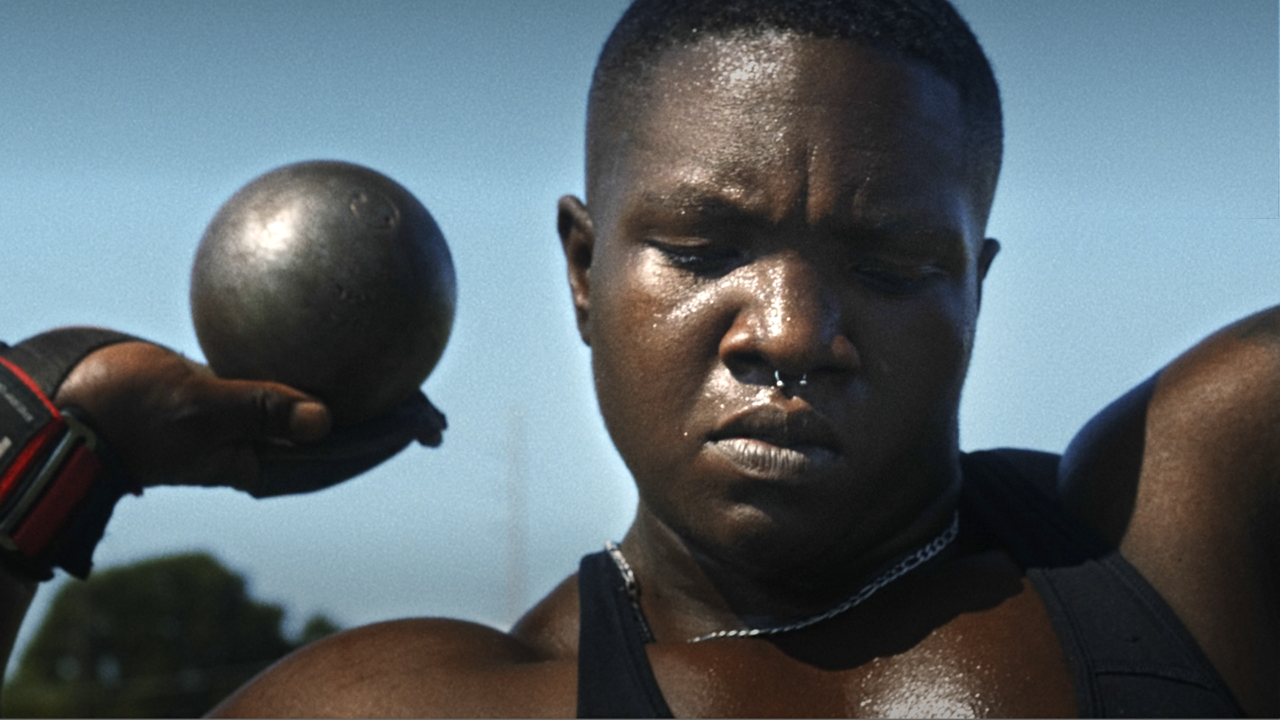
film
Written by Julianne McShane
As Saunders prepared for the Olympic Trials and looked forward to what they hoped would be a spot on Team USA in 2016, they reveled in the chance to check off a major career goal by the time they turned 20.
“That’s really how I treated the year — like I had nothing to lose and everything to gain,” they said.
Saunders earned their ticket to Rio after placing second in the trials. In Rio, they summoned some of their childhood memories of abuse and instability to muster the motivation to perform at their highest level.
“One of the things that pushes me to that level is that I always like to remember some of the hardest things that I’ve went through, because in those moments … you’re at the Olympic Games, it’s so much when you remember all the things you had to go through and all of the things you had to overcome,” they said.
Her focus paid off: They came in fifth, but “felt almost as if I had won.”
Michelle Carter, 30, became the first American woman to win gold in the event. For Saunders, watching Carter, who is also Black, felt like a glimpse into both their past — given that they had looked up to Carter as a young athlete — and what they hoped their own future on the podium would look like.
“I was sitting out there thinking, ‘This is what it’s going to be like when it’s my turn,’” they said.
‘It was kind of like a hopelessness’
When Saunders returned to the states, they were left without much time or support to process their emotions, they said — including those they had summoned from their childhood to perform at their best. Between school, training and the financial strain, they felt burned out.
“I had no type of mental break to de-stress. … As the weeks kept going, I was in a daze,” they said. “Everything else outside of training, I honestly just gave up on. … It was kind of like a hopelessness.”
In January 2018, after returning from winter break, their depression got worse, and they began to have suicidal thoughts, they said.
One day, driving past a cliff that they passed on their regular route to practice, they considered driving off of it, they said.
“I looked at it, and I’m like, ‘Hey, I could do this,’” they said in the mini-documentary. “But something in me was just like, ‘Hit up your therapist.’”
Her therapist responded: “Give me a minute to help you.”
Help soon came in the form of nearly two months in mental health facilities, where Saunders had access to more intensive therapy and conversations with their mom about some of their unaddressed childhood wounds, they said.
Therapy “helped so much in the form of self-discovery and really learning about me as a person outside of my sport,” Saunders said.
It also allowed them to get back to the sport they love. In June of that year, Saunders announced they signed with Nike, and placed third at the USA track and field championships.
‘If I could have my way, gold all the way’
Now, Saunders is gearing up for the Olympic Trials next month in Eugene, Oregon, where they hope to reclaim their spot on the U.S. Olympic team.
The U.S. Olympic and Paralympic Committee provides Team U.S.A. athletes with year-round access to mental health services, according to spokesperson Jon Mason. The committee has also increased its mental health offerings over the past year, in light of the pandemic, by creating a 13-member mental health task force that meets monthly, hiring three independent mental health officers, and launching an online registry of mental health providers and a round-the-clock support line, Mason added. And in 2019, the committee created its athletes services division to separate professionals supporting athletes’ mental health and wellness from those supporting their athletic performance, he said.
For Saunders, having a mental health plan in place means they can devote more time to focusing on their goals: earning a spot in Tokyo, where they hope to emerge as the best in the world.
“There are some great women in the world — there’s a slew of us right now,” they said. “Anybody can take home that gold medal. But if I could have my way, gold all the way.”
If you or someone you know is in crisis, call the National Suicide Prevention Lifeline at 800-273-8255, text HOME to 741741, or visit SpeakingOfSuicide.com/resources for additional resources.
WellBeings.org is a health and wellness resource, not a crisis or suicide response website. If you are in crisis, or experiencing thoughts of suicide, please call or text the 988 Suicide & Crisis Lifeline at 988 or the LGBT National Hotline at (888) 843-4564. The service is free and available 24 hours a day, seven days a week.